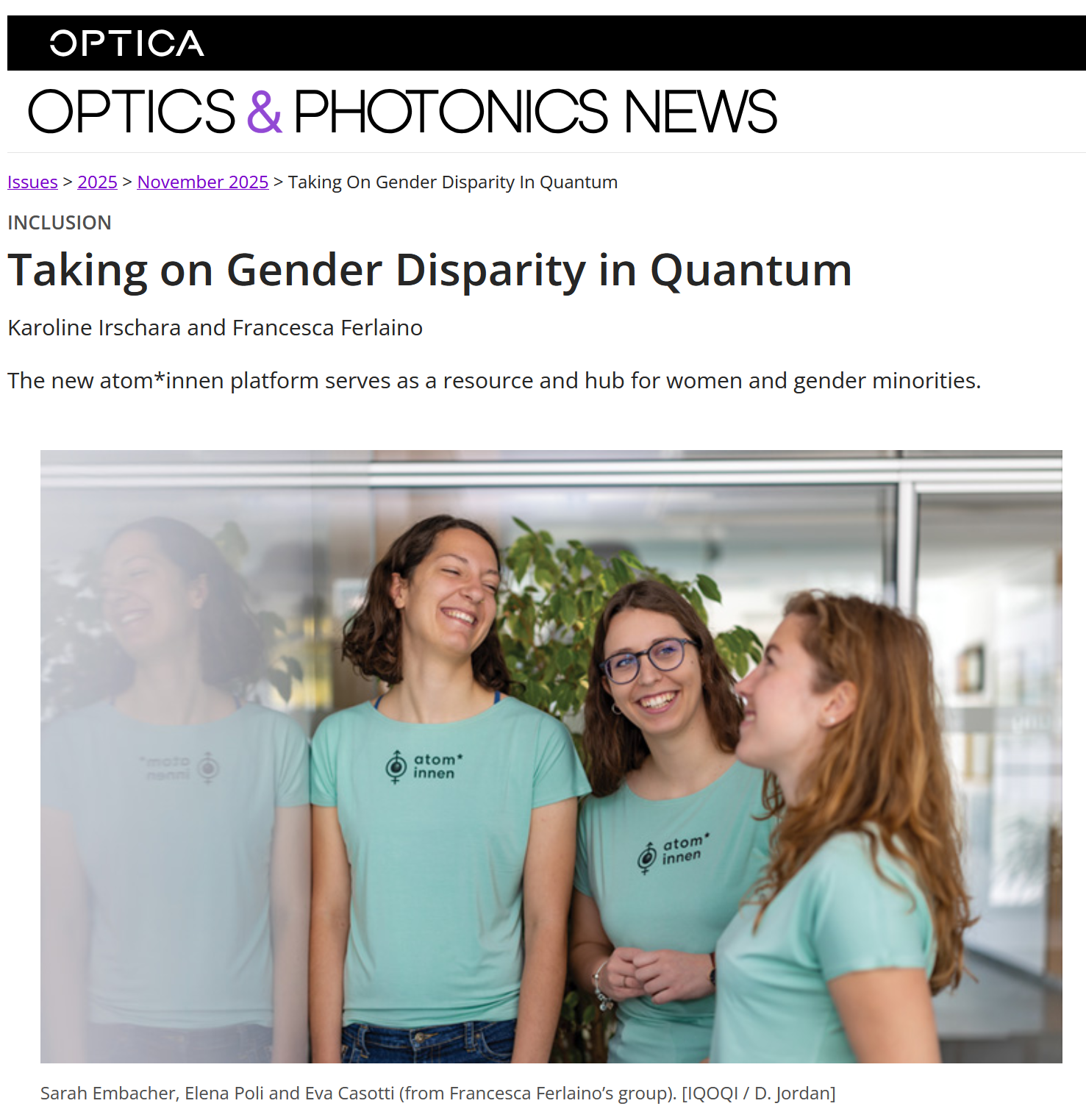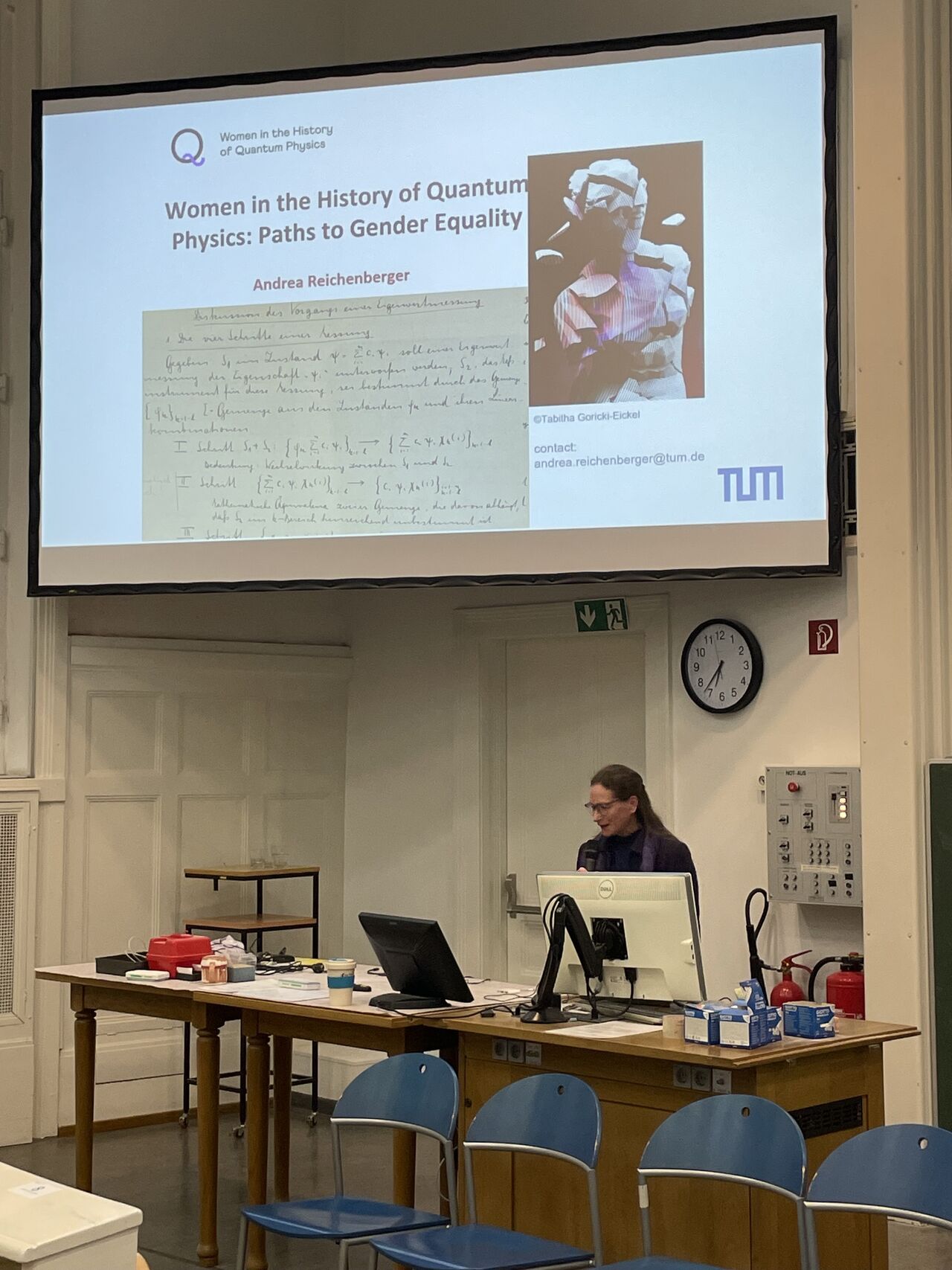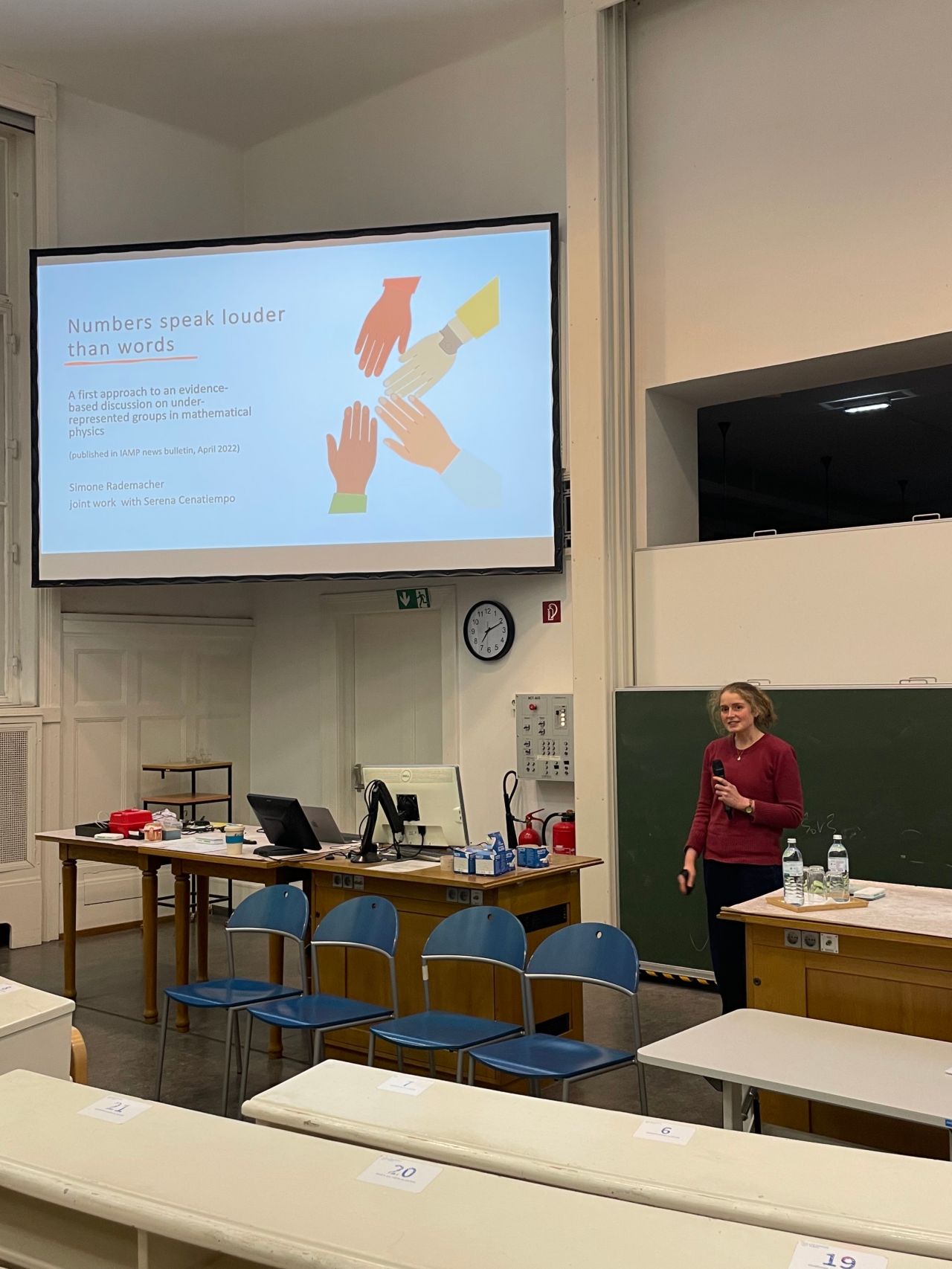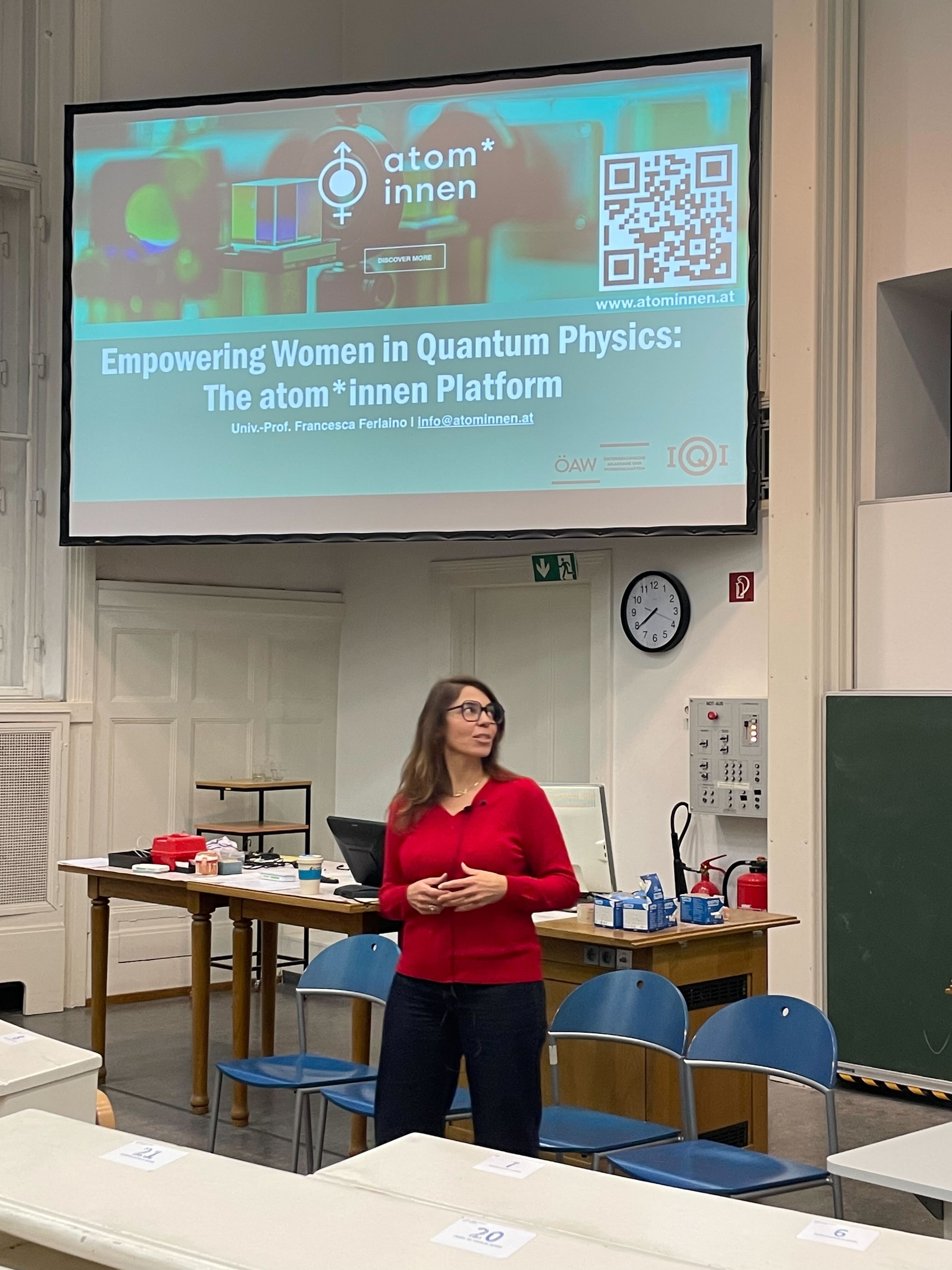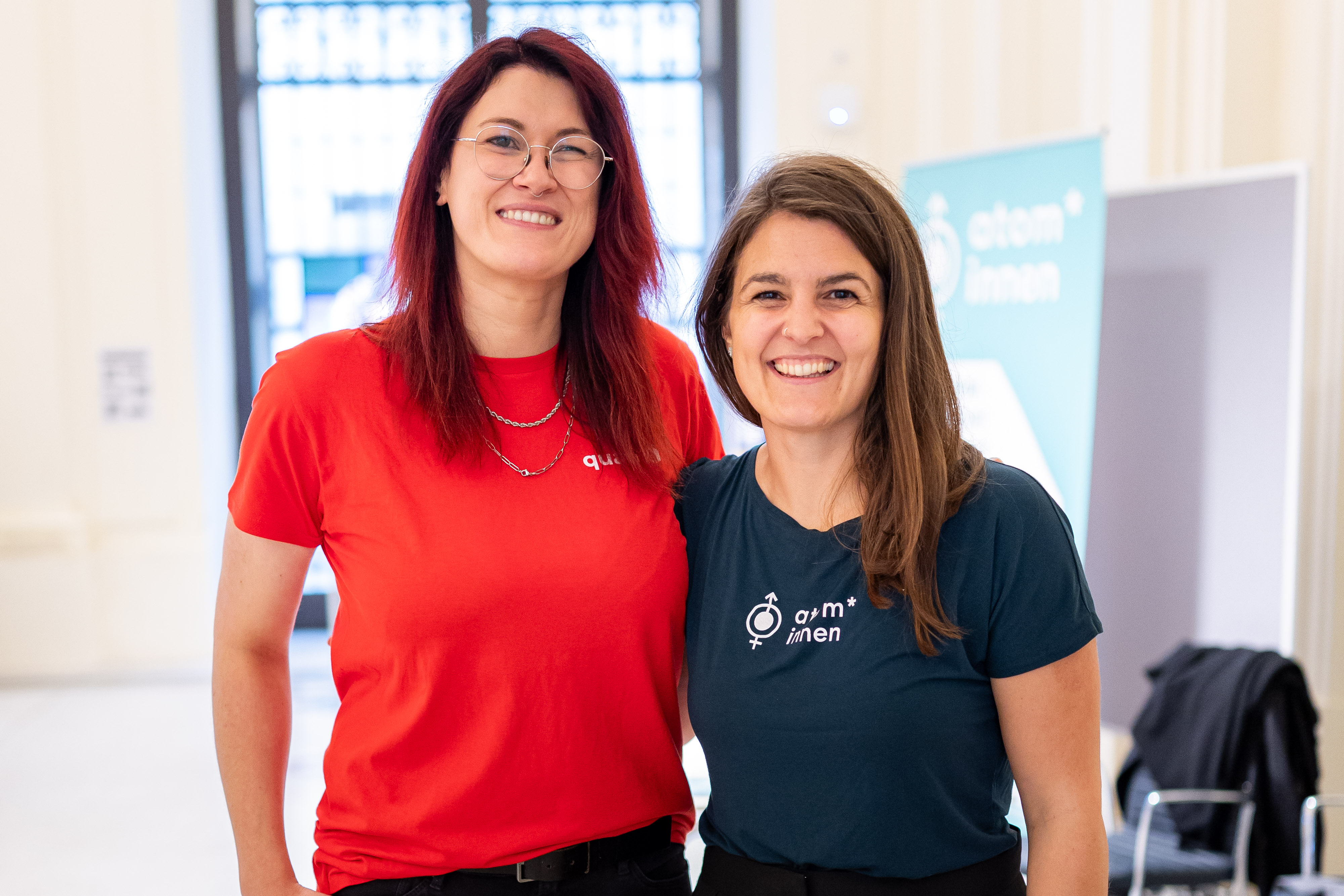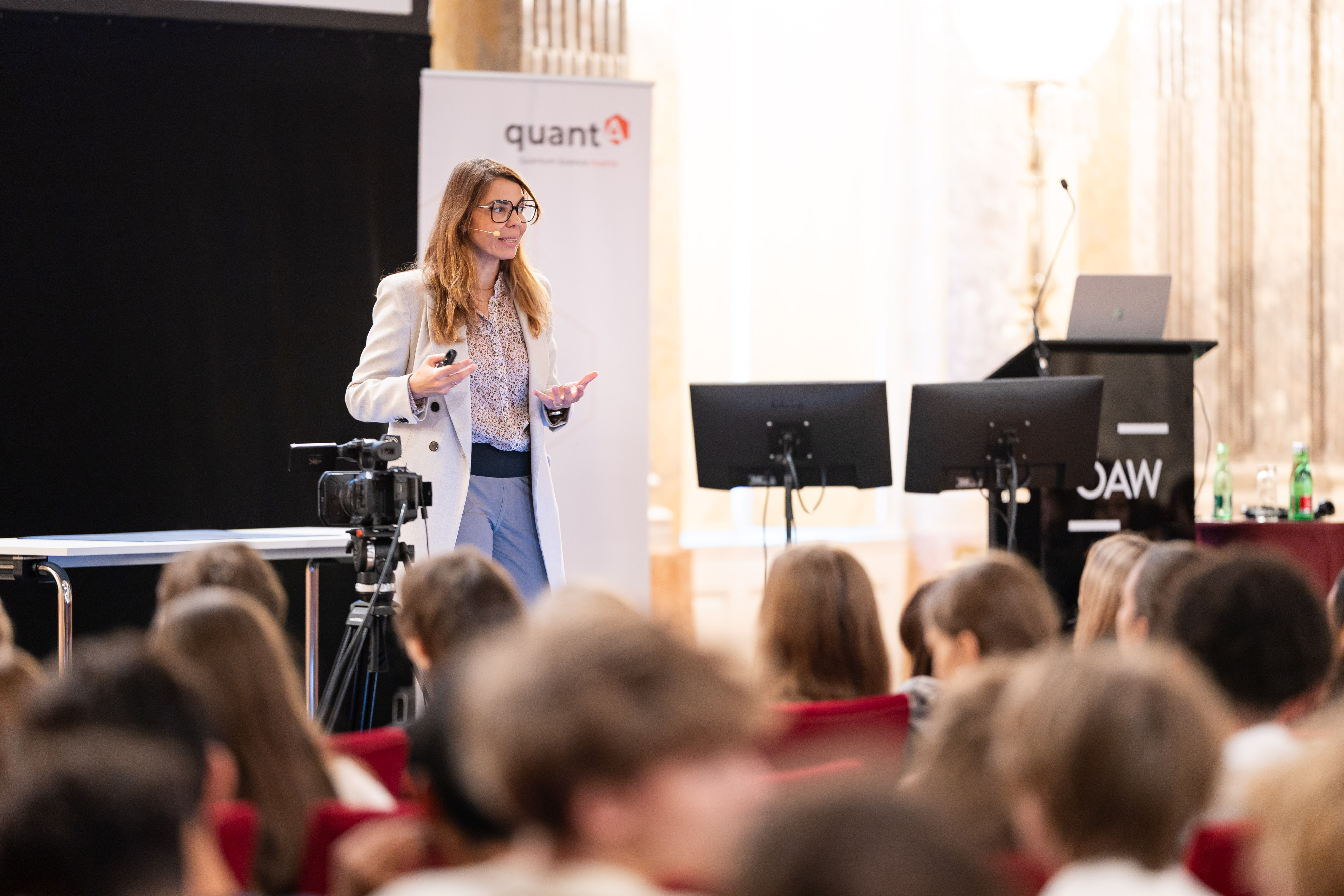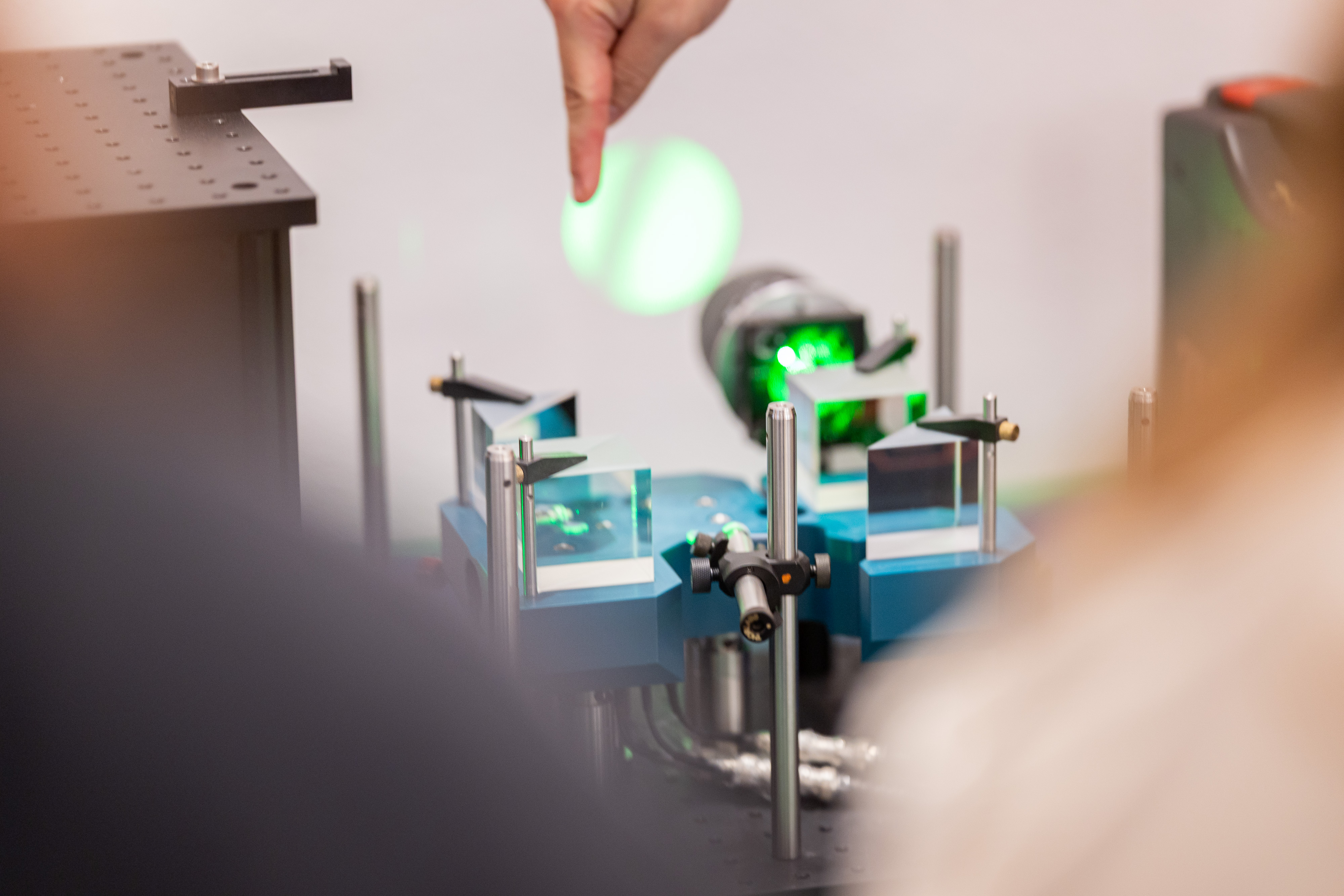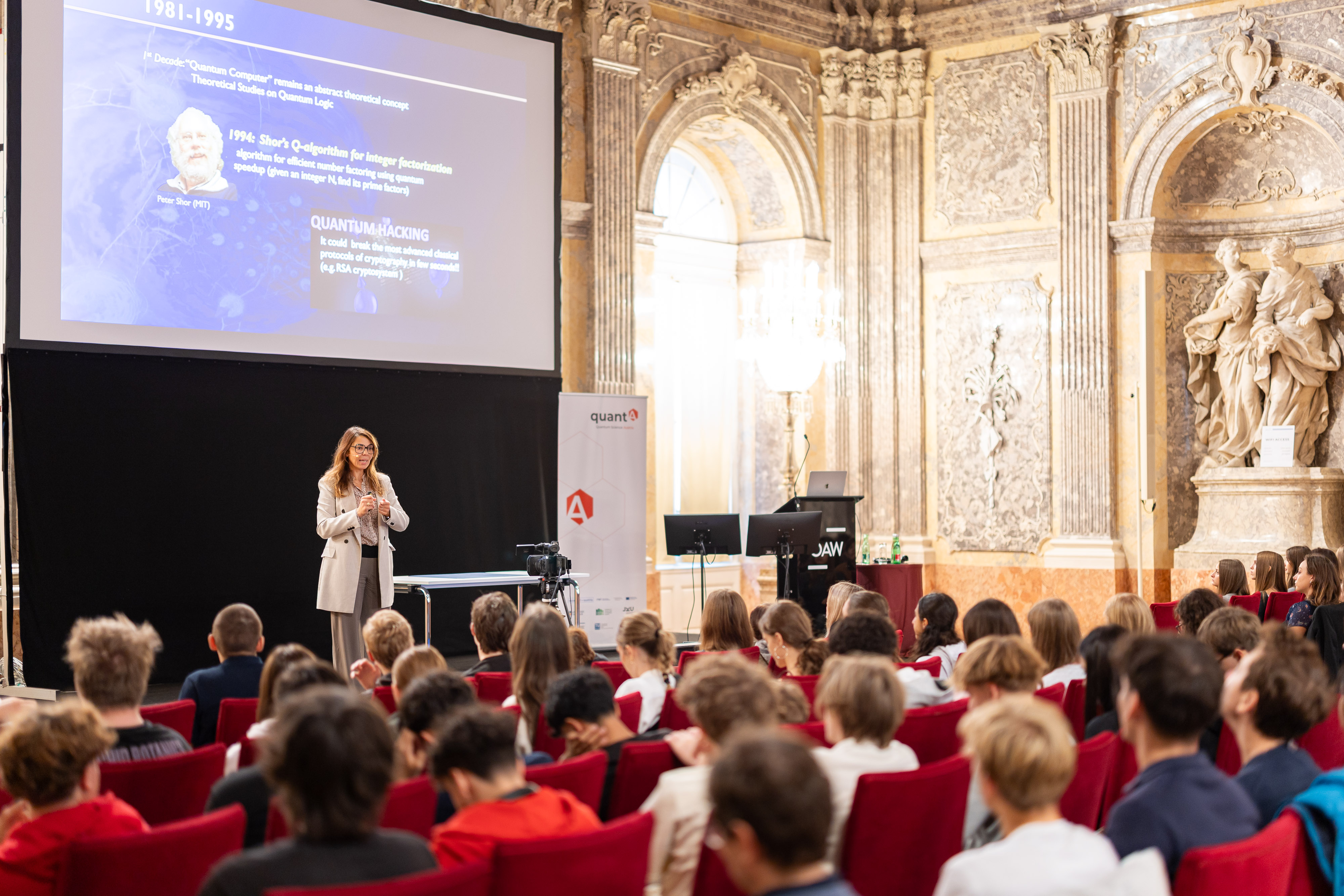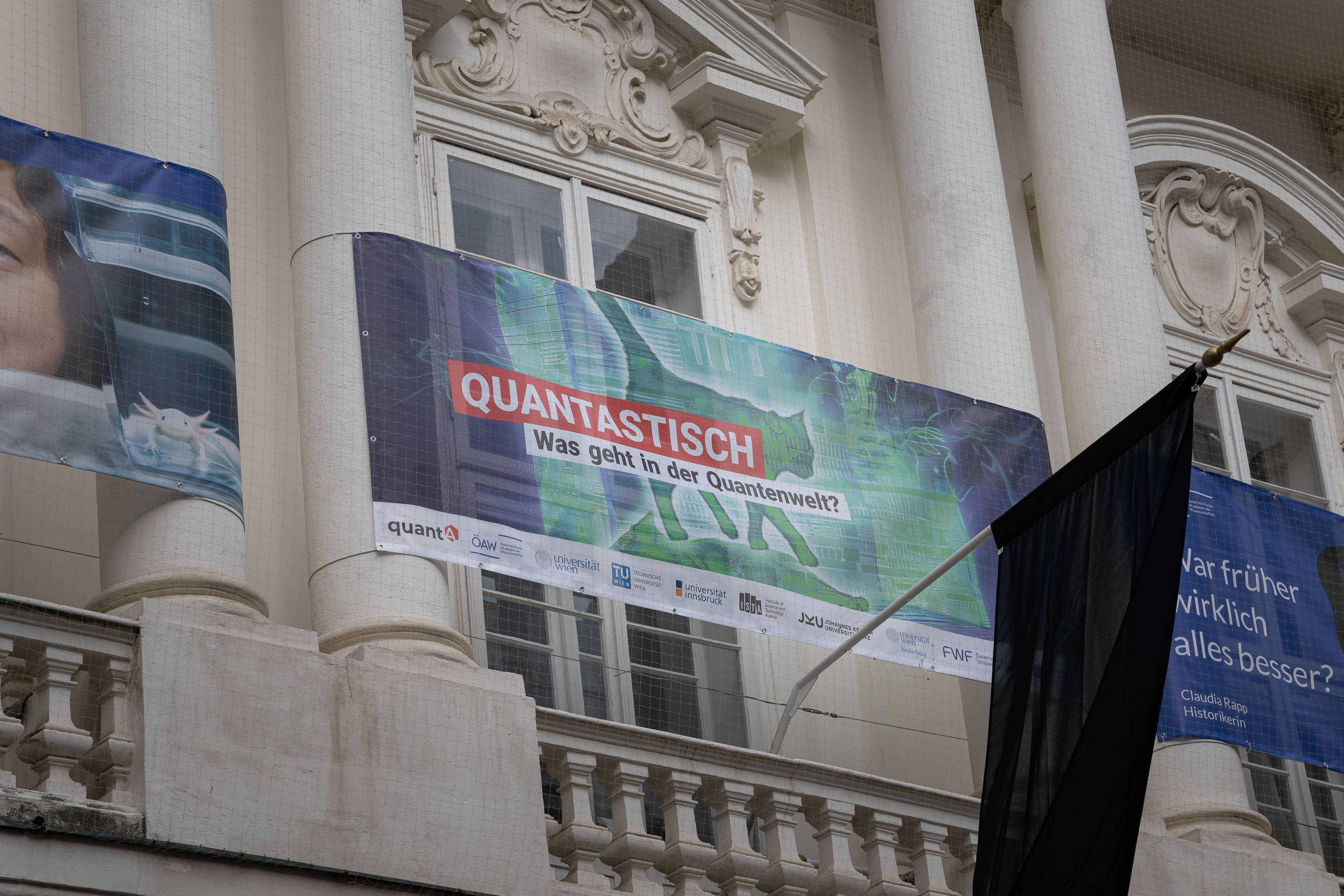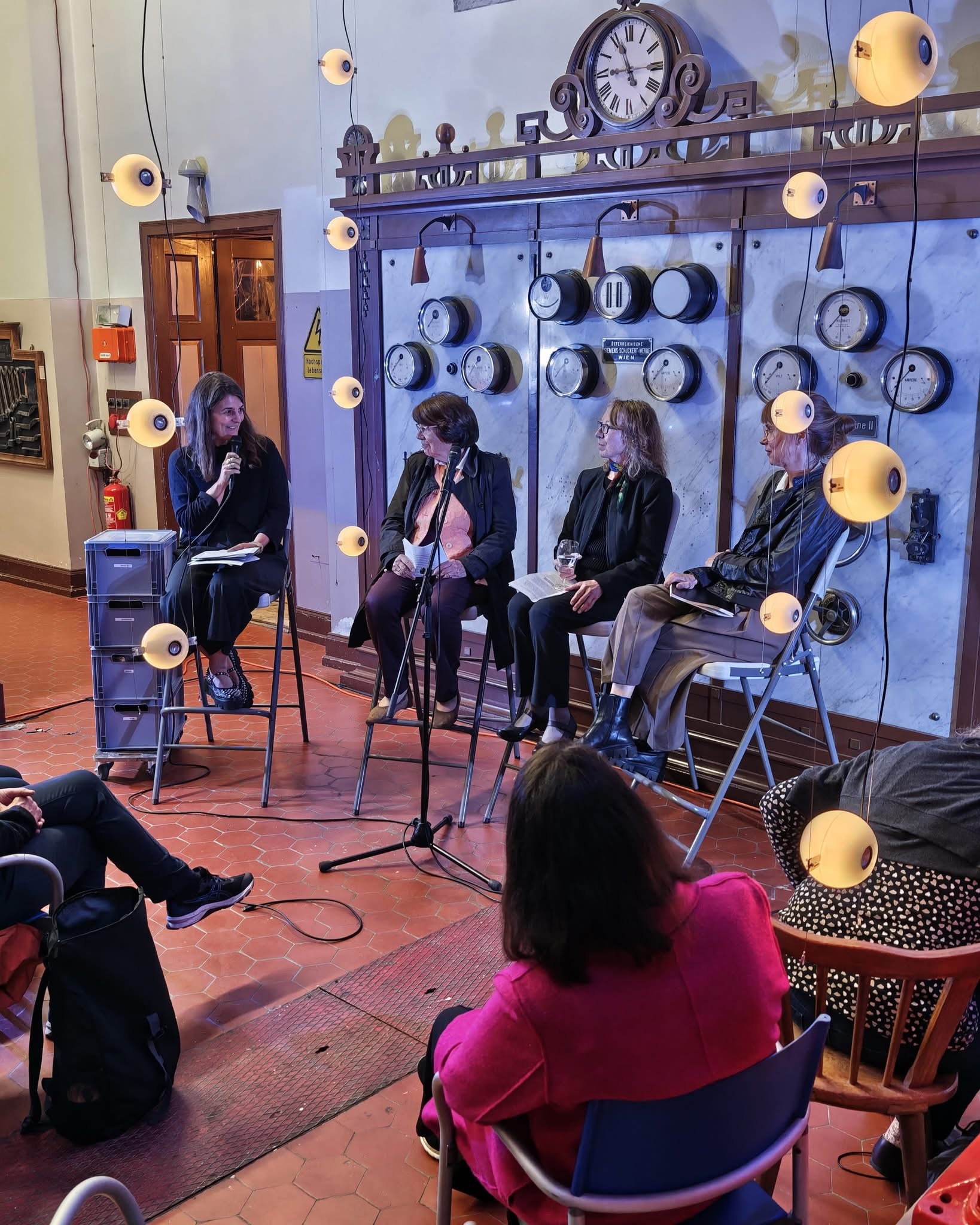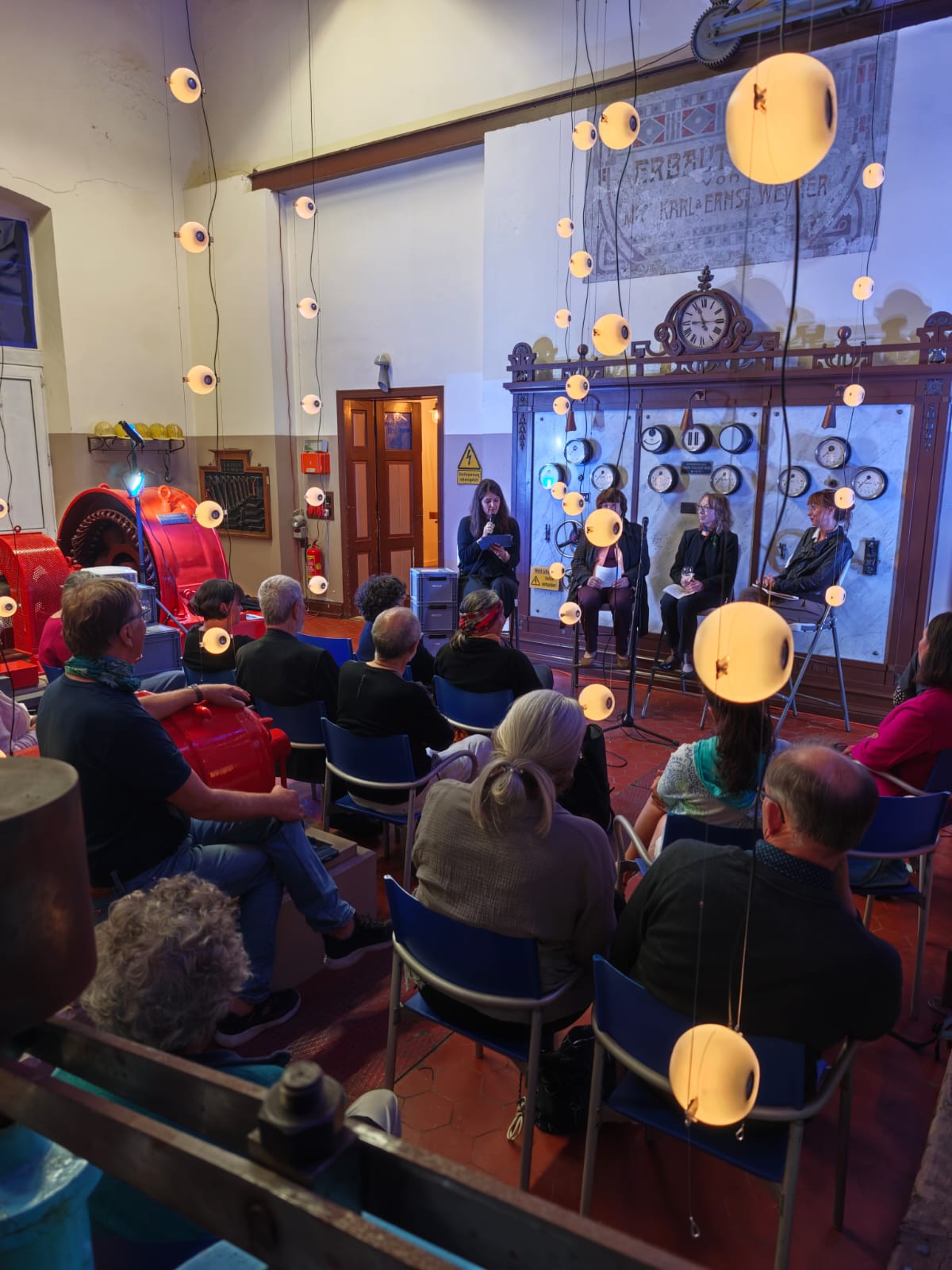We are thrilled to share some wonderful news: Prof. Francesca Ferlaino, founder of Atominnen, was awarded Austria’s Scientist of the Year 2025.
This prestigious award, presented by the Austrian Association of Science and Education Journalists, recognises not only her outstanding scientific achievements, but also her exceptional dedication to communicating science. It recognises her remarkable dedication to making complex quantum phenomena accessible to the general public, and to emphasising the importance of fundamental research for society.
Beyond her internationally acclaimed research, Francesca Ferlaino is deeply committed to opening up science by sharing knowledge beyond academia, engaging diverse audiences and fostering dialogue between research and society.
„I am deeply honored by this prestigious recognition. I have always been convinced that science is not a solitary effort, but a shared good whose value grows when knowledge is exchanged and communicated. This award gives special recognition to the importance of science communication and to the role it plays in making research meaningful for society. I am particularly proud if, through my work, I have been able to contribute to a broader understanding of the importance of fundamental science,” says Francesca Ferlaino.
This award also recognizes her tireless advocacy for equality and inclusion in physics. She is committed to encouraging girls and women that they are urgently needed in physics and science and that we would all do well to break down stereotypes - after all, science is for everyone.
We warmly congratulate Francesca on this well-deserved honour, and thank her for being such an inspiring role model, mentor and driving force for an inclusive scientific culture. Atom*innen could not be more proud :-)
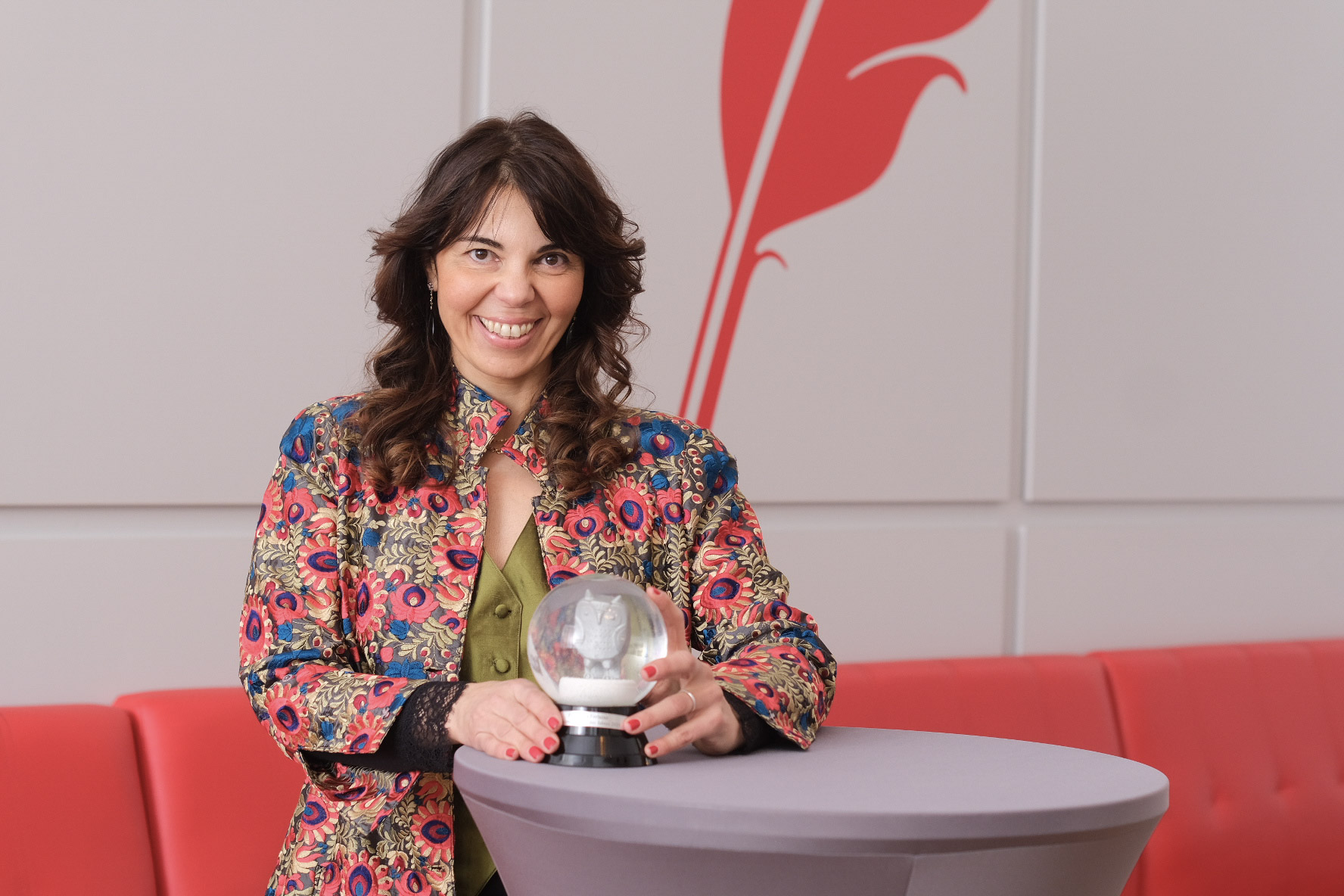
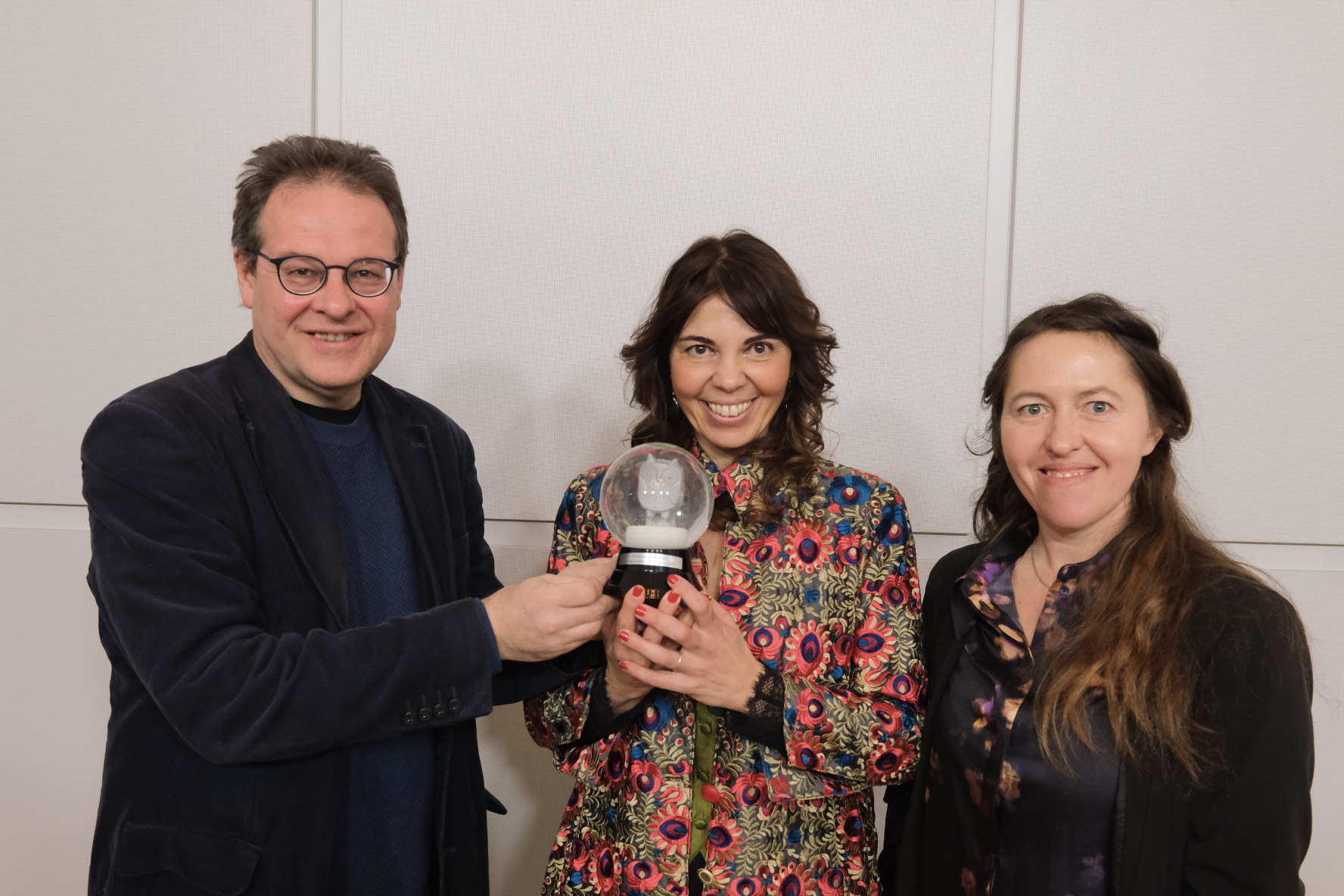
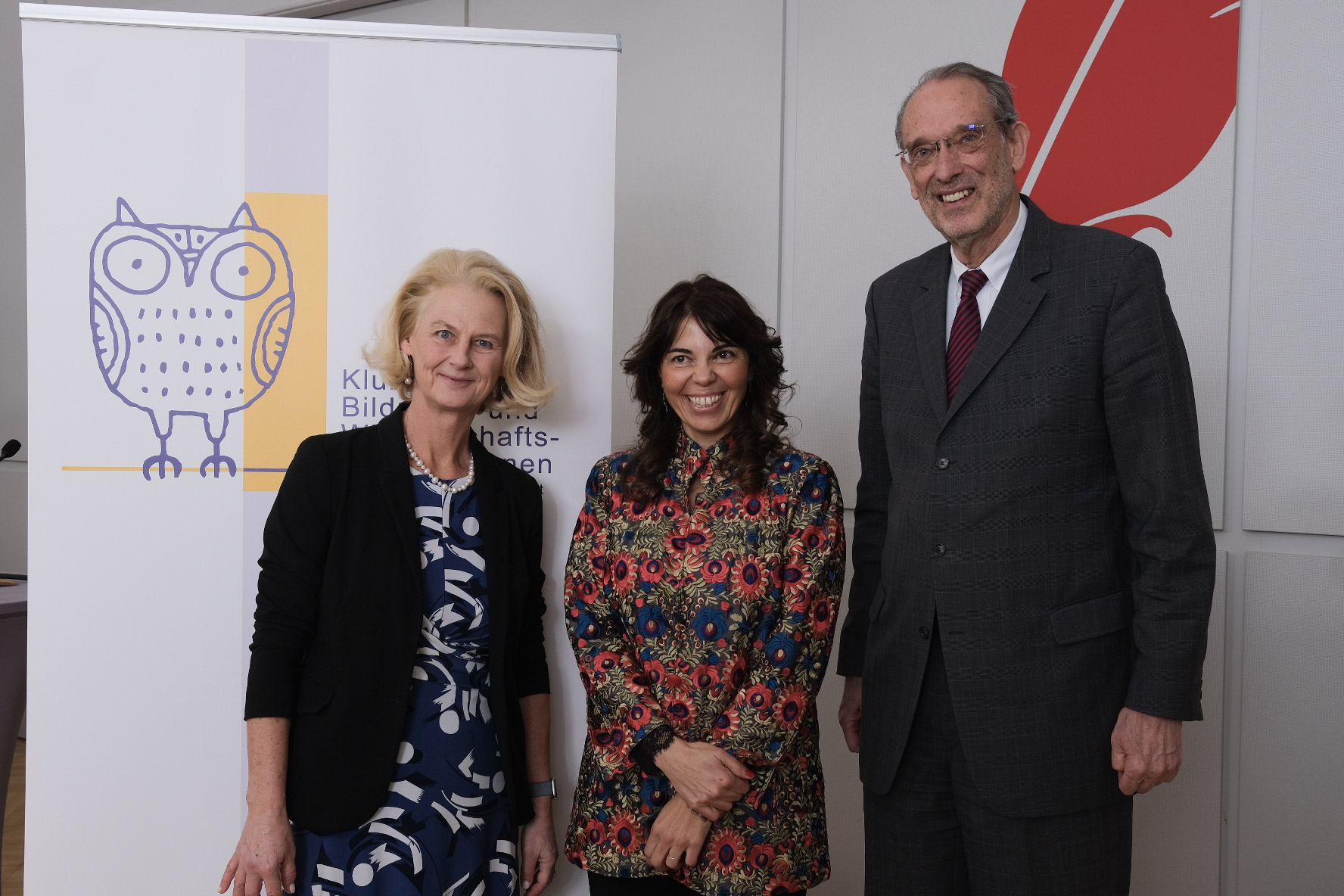
Photos by Roland Ferrigato
Press coverage:

